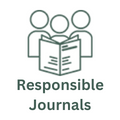Martin Heidegger and the attempt to reflect on the essence of the technique as a reorientation in the ethos
DOI:
https://doi.org/10.21501/23461780.1803Keywords:
Ethos, Being, Man, Modern technique, Truth.Abstract
The discussion about the modern technique is not a matter little worked from the philosophy. Although, this discussion has not worked enough by academicians and philosophers, it does not want to say with this, which already should exhausted totally. In fact, it is necessary to clarify about technique and technology inside the philosophy. Due to, the purpose of this article is announce the problem of the modern technique empire not only as a latent risk, but also as possibility of an ethical reorientation from Martin Heidegger. Nowadays, the discussion centers to determine if really the Germany philosopher proposed or not an ethical or moral agreement in his philosophical labor made by experts and academicians, also defenders and opponents of the heideggerian thought. The present reflection tries to defend that Heidegger does not elaborate a moral philosophy as any of his antecessors did it but he elaborated an ethical offer, nevertheless this time to the margin of what traditionally understood of the same one. Finally, Heidegger proposes a traditional ethics in terms of the duty and the rule, but for an ethos in relation to the technology where the man resides and lives in the middle of the whole entity without being way and end. Therefore, the Ethos will make possible the original relation is re-established among the nature, the man, the technique and the truth in the essence of the modern technique.Downloads
References
Acevedo, J. (1999). Heidegger y la época de la técnica. Santiago de Chile: Universitaria.
Díaz, J. (1970). Conversación con Heidegger. Recuperado de: http://www.bdigital.unal.edu.co/30301/1/29089-104478-1-PB.pdf.
Cerezo Galán, P. (1993). Metafísica, técnica y humanismo en Heidegger o el final de la filosofía. Madrid: Complutense.
Heidegger, M. (1990). Leyte Identidad y diferencia. Barcelona, España: Anthropos.
Heidegger, M. (1994). La pregunta por la técnica en Artículos y conferencias. Barcelona, España: Serbal.
Heidegger, M. (1997a). La pregunta por la técnica, en Filosofía, ciencia y técnica. Santiago de chile: Universitaria.
Heidegger, M. (1997b). Construir, habitar, pensar en Filosofía, ciencia y técnica. Santiago de chile: Universitaria.
Heidegger, M. (1997c). La vuelta (Kehre) en Filosofía, ciencia y técnica. Santiago de Chile: Universitaria.
Heidegger, M. (2000). Carta sobre el humanismo. Madrid, España: Alianza.
Heidegger, M. (2001). Introducción a la metafísica. Barcelona, España: Gedisa Editorial.
Heidegger, M. (2003). Aportes a la filosofía. Acerca del evento. Argentina: Biblos.
Heidegger, M. (2005). ¿Qué significa pensar? Madrid, España: Trotta Editorial.
Heidegger, M. (2015). Schawarze Hefte 1942-1948. Anmerkungen I Gesamtausgabe 97. Frankfurt, Alemania: Vittorio Klosterman.
Parménides & Heráclito. (1983). Fragmentos. Barcelona, España: Orbis.
Downloads
Published
How to Cite
Issue
Section
License
La revista y los textos individuales que en esta se divulgan están protegidos por las leyes de copyright y por los términos y condiciones de la Licencia Creative Commons Atribución-No Comercial-Sin Derivar 4.0 Internacional.
















